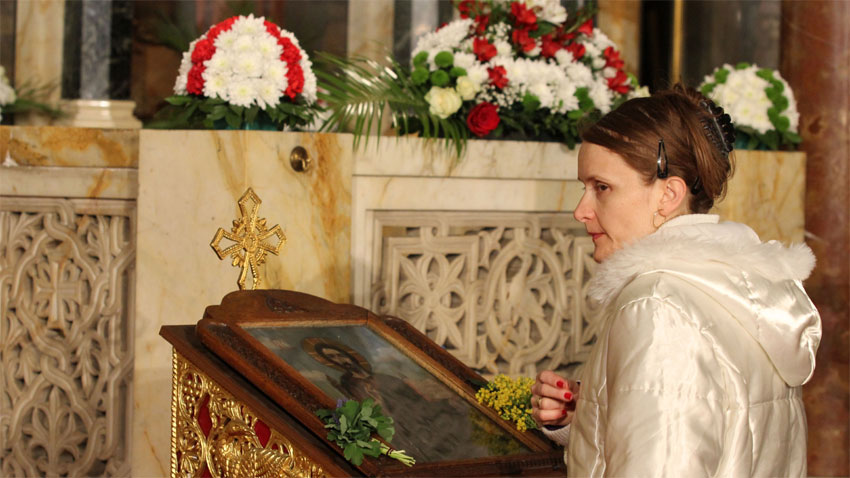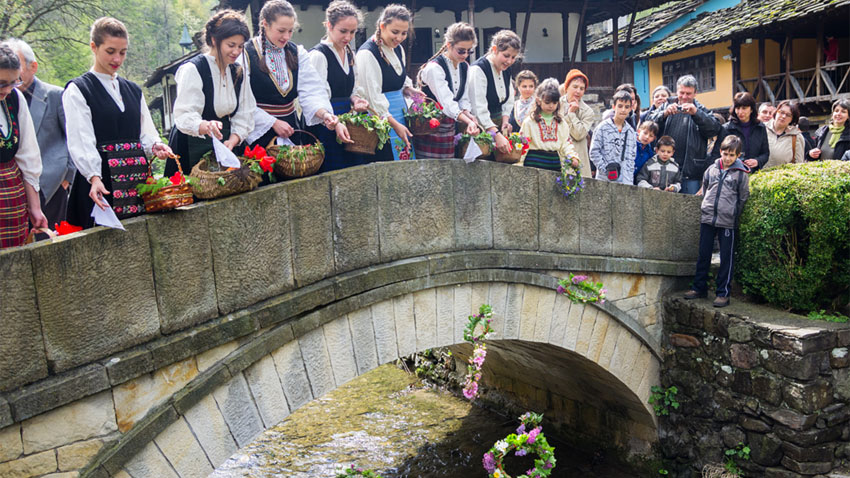Day after Lazarus Saturday and a week before Easter, Palm Sunday (“Tsvetnitsa”) comes - a spring holiday, devoted to reviving nature and its life-giving power. In the church calendar, this holiday is dedicated to the entrance of Christ in Jerusalem, where He was welcomed with laurel and olive branches, days before being crucified. The day is marked by Orthodox, Catholic and Protestant Chirstians.

In Bulgaria it is also called Vrubnitza, Flower Sunday, Kuklinden. Traditionally, in the morning, there is a festive church service, from which people leave carrying blessed willow branches, geranium and flowers that they place in front of an icon in home and atthe front door. In the past they used to keep the willow branch because of the belief in the powers of the twig to protect against diseases and disasters. In the spring and summer, when a storm came, people brought the wreath in the yard and looked through it to the clouds, with the hope that skies would clear. People also believed lighting part of the twig would prevent thunderstorms. Holding a willow stick taken from the church, people took cows to their first spring grazing in order for them to be healthy.
Special loaves of bread are bakedonVrabnica, which are part of bride rituals. Folk rituals end with the custom of “lazaruvane”. In the morning young brides as well as unmarried girls bring wreaths of willow twigs, flowers, and little loaves of bread, called “kukla”. The girls put the ritual objects in the river and watch whose wreath or bread will be the fastest and taken further by the flow of water. The winner enjoys special attention from the others.
The Lents are not over, but because of the significance of the day, fish is allowed to be consumed. The tradition does not allow people to dance “horo,” that has the chain of people closed and forming a circle. Only “Buenek” is danced – a lively open horo dance, accompanied by a song. People dance to the right and the chain is led by a young woman.

Today the holiday continues to be celebrated throughout the country. Willow twigs and flowers decorate homes and churches. Most festive is the mood in the homes of the great number of people bearing a name of a flower, a tree, or a plant.
English: Alexander Markov
Photos: archiveThe historic town of Tryavna will celebrate St Lazarus' Day, traditionally held on the Saturday before Palm Sunday. The Bulgarian custom, known as lazaruvane , is closely linked to the themes of love and marriage and will be re-enacted this..
The feast of the Annunciation (Blagoveshtenie in Bulgaria) is a holy day , a symbol of God’s infinite mercy to people and especially to women, blessed to bear new life, but also an embodiment of the eternal human longing for something better in the..
Clocks and bells will ring out in the center of Stara Zagora on Saturday, when the city will host the XXIV Masquerade Games Festival . The event will start with a traditional parade of participants. Attractive babugers, araps, old men and other..

+359 2 9336 661
